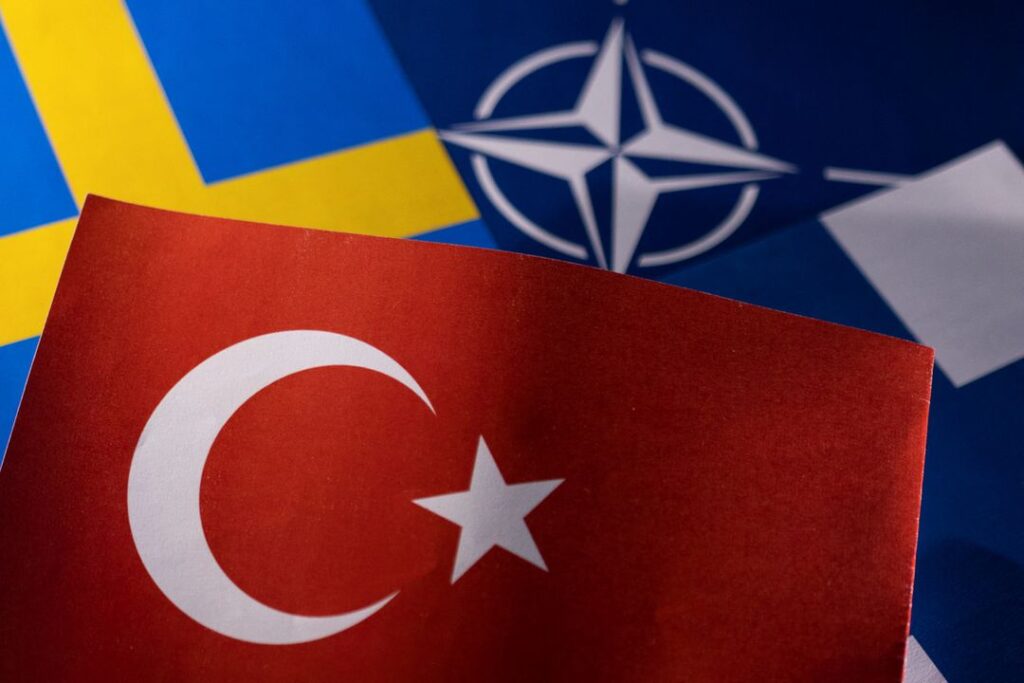Why Finland and Sweden will compromise with Turkey
What on the surface looks like Finland’s and Sweden’s negotiations with Turkey over the admission of the two previously neutral Scandinavian countries to NATO, is essentially an outward expression of two overlapping heterogeneous processes.

By Valentin Yakushik
On May 18, 2022, Sweden and Finland officially applied to join NATO. Almost all members of this military alliance have welcomed such a step and are ready to apply accelerated procedures for the entry of these two countries into NATO. But Turkey has put forward a number of political demands in this regard and is waiting for the response. In such circumstances, Pekka Haavisto, Finnish Foreign Minister, has recently informed that “representatives of Finland, Sweden and Turkey will meet in Finland in August”.
In fact, it is difficult to have doubts that Sweden and Finland will be admitted to NATO in a shortest time.
What on the surface looks like Finland’s and Sweden’s negotiations with Turkey over the admission of the two previously neutral Scandinavian countries to NATO, is essentially an outward expression of two overlapping heterogeneous processes.
(1) The first of them is a further natural process of integration of Sweden and Finland into common/unified defense structures of the West – under the leadership of the United States and with an organizational core in the form of NATO. This is a consequence of such factors:
(A). The change in the role and overall weight of the current Russian Federation in comparison with the USSR and the Russian Empire in the period of their geopolitical power, as well as the departure of the leadership of the post-Soviet Russian Federation from the policy of Westernization in the role of a “junior partner” of the West.
(B). The coming to power in Sweden and Finland of Euro-Atlantic-oriented elites, accompanied by significant weakening of the conditionally “isolationist”, more precisely, “neutralist”, “geopolitically balancing” elites. The society of these countries has overcome strong specific “traumas of historical memory” resulting from previous tragic clashes with Russia. Now, in addition, there is a vivid entrenchment of faith in the leading geopolitical role of the US neoconservatives and neoliberals, after the removal from power in the United States of populist isolationists who sometimes even questioned the very expediency for the United States of the existence of NATO.
(2) The second process is the growth of Turkey’s geopolitical ambitions. Those are amplified by the urgent necessary for the current national leadership to demonstrate new illustrative foreign policy successes in the context of the unfolding acute pre-election struggle in the country. Meanwhile, the United States are unable to somehow “put pressure” on Turkey – after all, such a “stubborn”, but very important NATO-member cannot be offended, pushed away, and even more so lost.
In matters of supplying newest American weapons to Turkey, a compromise has been already reached. On the second block of fundamental issues discussed with the united West (on the “Kurdish problem”), Turkey will continue to demand that Sweden and Finland actually fulfill, and not just promise to fulfill political requirements that are important for Recep Tayyip Erdogan and his party.
The U.S. would easily accept the restrictions on the left-wing Kurdish organizations in Scandinavia, on which Turkey insists. Irrespective of a very sensitive nature of these delicate issues, Sweden and Finland will find certain compromise solutions in order to fulfill the demands of Turkey (which is fighting Kurdish armed groups) and at the same time not to deviate very much from the Scandinavian constitutional principles of political and cultural pluralism, deeply entrenched in the society.
The author is a Kiev-based political scientist and scholar.
We welcome all pitches and submissions to IAR via email: iareview2019@gmail.com